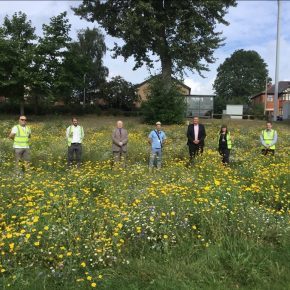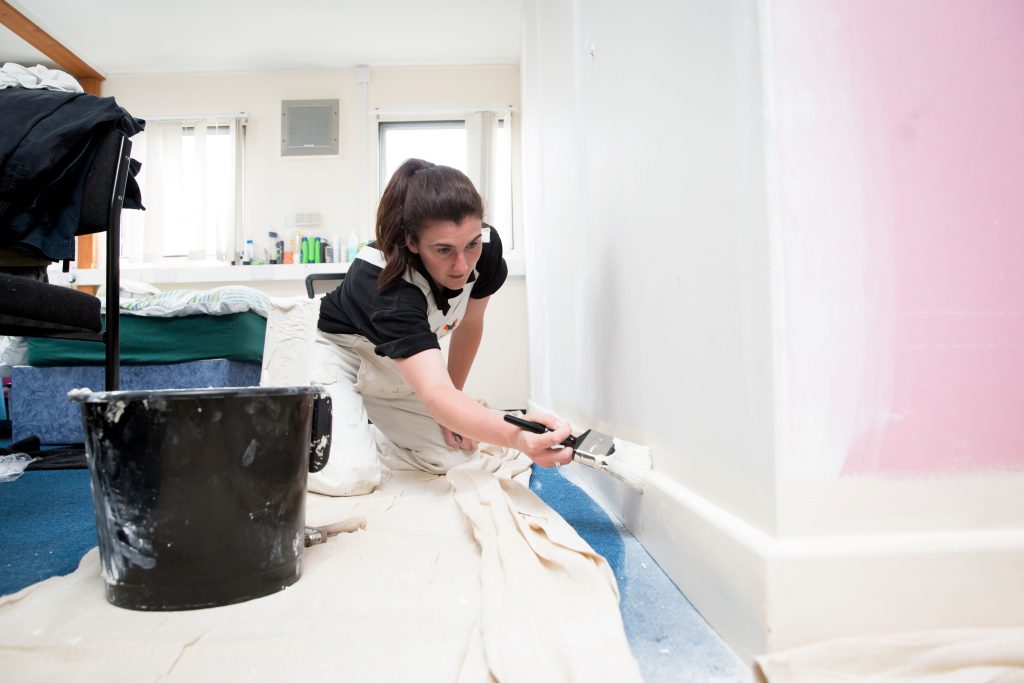
GUEST ARTICLE: The role of contractors in creating sustainable solutions
In this article, Charlie Cooley, Head of Operations for leading national maintenance and compliance contractor Novus Property Solutions, discusses how contractors can work towards sustainability.
According to the World Green Building Council, the worldwide construction industry generates an estimated 39% of the world’s carbon emissions due to consuming a large number of raw materials and natural resources.
There is an obligation for all levels of the industry’s supply chain to utilise solutions that reduce the impact on our environment and fortunately, through the use of greener products and methods of work, this is becoming increasingly achievable.
Recycling is key
It’s important to consider disposal to landfill as the last practical option, and instead find ways to give a new lease of life to items used on site.
A vast number of materials and products that are used across the industry can be recycled, from timber to paint, and some supply chain partners may have existing schemes in place.
Training from within
Environmental awareness training courses ensure a high level of knowledge across the business which can be utilised for creating new initiatives that can be taken both internally and externally.

Sustainable travel
Contractors should also look to implement policies and initiatives to help reduce their transport emissions, mileage, and costs. Such steps include increased homeworking opportunities and enhancing their digital support so their teams can successfully work from any location.
Sustainable travel is also vital step in reducing carbon footprint, with an ever-increasing number of companies swapping fuel-filled vans and cars for hybrid or electrical vehicles. Although this step requires an initial financial outlay, sustainable travel is a worthwhile investment for reducing carbon footprint as well as longer-term cost savings.
Travelling to a site with fully loaded vans or outsourcing work to local forces where possible will reduce the number of travelling vehicles. Furthermore, there are a number of partnering agreements that companies can put in place that will significantly reduce their travel carbon footprint to improve the air quality for local communities and wildlife.
Supporting the local community
It is vital when taking an overview of sustainable actions that contractors work closely and collaboratively with their employees, clients, and supply chain to incorporate social value into strategic decision making.
Whilst following all of the above steps will help the local community, there’s always more that can be done through targeted social value initiatives. These can be incorporated into business-wide social value targets, or they can be smaller-scale projects built into contracted works, whether through the materials used, or donating money, time or labour to an environmentally-focused charity or community project.
If contractors take the time to plan sustainability actions into their projects whilst also working to reduce their operational impacts, the construction and maintenance sectors can begin to improve their reputations as carbon emission-heavy industries.
Latest news

26th July 2024
Enfield Speciality Doors completes world-class project for Atlas Copco HQ
A rundown office and warehouse building completely transformed into a modern headquarters for Atlas Copco has been fitted with more than 120 internal fire doors from Enfield Speciality Doors.
Posted in Access Control & Door Entry Systems, Articles, Building Industry News, Building Products & Structures, Building Systems, Case Studies, Doors, Interior Design & Construction, Interiors, Posts, Restoration & Refurbishment, Retrofit & Renovation, Security and Fire Protection, Sustainability & Energy Efficiency, Timber Buildings and Timber Products, Wooden products
26th July 2024
Abloy UK launches new white paper
Abloy UK, a leading provider of security and access control solutions, has launched a new white paper.
Posted in Access Control & Door Entry Systems, Architectural Ironmongery, Articles, Building Industry News, Building Products & Structures, Building Services, Doors, Facility Management & Building Services, Health & Safety, Information Technology, Innovations & New Products, Publications, Research & Materials Testing, Security and Fire Protection
26th July 2024
MCRMA Member Profile: David Roy, Director of Roofconsult
David Roy of MCRMA member company Roofconsult has more than 50 years’ experience to draw upon working in the building envelope sector and a unique perspective on how it has changed in that time.
Posted in Articles, BIM, Infrastructure & CAD Software, Building Associations & Institutes, Building Industry News, Building Products & Structures, Building Services, Building Systems, Cladding, Information Technology, Restoration & Refurbishment, Retrofit & Renovation, Roofs, Walls
26th July 2024
Strand: Enhancing Door Functionality and Safety
Craig Fox, Sales Director for Strand Hardware, outlines how door industry professionals might apply door limiting stays…
Posted in Architectural Ironmongery, Articles, Building Industry News, Building Products & Structures, Building Services, Doors, Facility Management & Building Services, Health & Safety, Restoration & Refurbishment, Retrofit & Renovation
 Sign up:
Sign up: